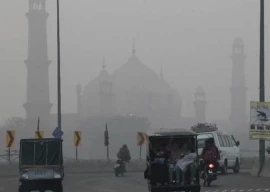
The Financial Action Task Force (FATF) has placed Pakistan on the blacklist due to the negligence of FMU. The finance experts predict that Pakistan may face economic trouble after the FATF move. They said foreign investors were already wary of bringing their money to the country because of law and order problem, this latest blacklisting would further hurt the nation’s image.
Pakistan is the member of the FATF for Asia Pacific for many years and the anti-money laundering ordinance was first time introduced in 2007. A unit comprising financial experts was made and its office was established in the State Bank of Pakistan. This institution came under the supervision of the finance ministry.
Azhar Qureshi was the first director general and with his efforts the anti-money laundering ordinance was amended according to the international standard. Pakistan’s performance was appreciated by the FATF.
But with the arrival of the present director general, the department has lost its capacity and reputation. Sources said that all the banks and monetary institutions are bound to report the FMU for any suspicious money transaction out of Pakistan. For this reason, all the head offices of banks and monetary institutions were interlinked with the FMU through computers.
But, except a few, the FMU has failed to link all money changers, insurance companies and other institutions under its umbrella. The FMU has not taken concrete steps against those persons who support terrorists in Pakistan financially.
Published in The Express Tribune, February 20th, 2012.
COMMENTS (4)
Comments are moderated and generally will be posted if they are on-topic and not abusive.
For more information, please see our Comments FAQ

1731476617-0/Sandra-Oh-(2)1731476617-0-165x106.webp)















How we can earn a real money, not a anti-money Laundering, This is the point.
@Anjum Amin Siddiqui: English please!
Poor article, no research no facts.The actual text of FATF Report "In the second FATF public document, Improving Global AML/CFT Compliance: On-going Process, the FATF identified jurisdictions with strategic AML/CFT deficiencies that have provided a high-level political commitment to address the deficiencies through implementation of an action plan developed with the FATF. The situation differs in each jurisdiction and therefore each presents different degrees of ML/FT risks. The FATF encouraged its members to consider the strategic deficiencies identified in the second public document. Jurisdictions subject to the second public document, as of June 2011, are: Angola, Antigua and Barbuda, Argentina, Bangladesh, Brunei Darussalam, Cambodia, Ecuador, Ghana, Honduras, Indonesia, Mongolia, Morocco, Namibia, Nepal, Nicaragua, Nigeria, Pakistan, Paraguay, Philippines, São Tomé and Príncipe, Sudan, Tajikistan, Tanzania, Thailand, Trinidad & Tobago, Turkmenistan, Ukraine, Venezuela, Vietnam, Ukraine, and Zimbabwe."
plz take immediate action because all money changer or exchange companies,franchises are involve in illegal transfers